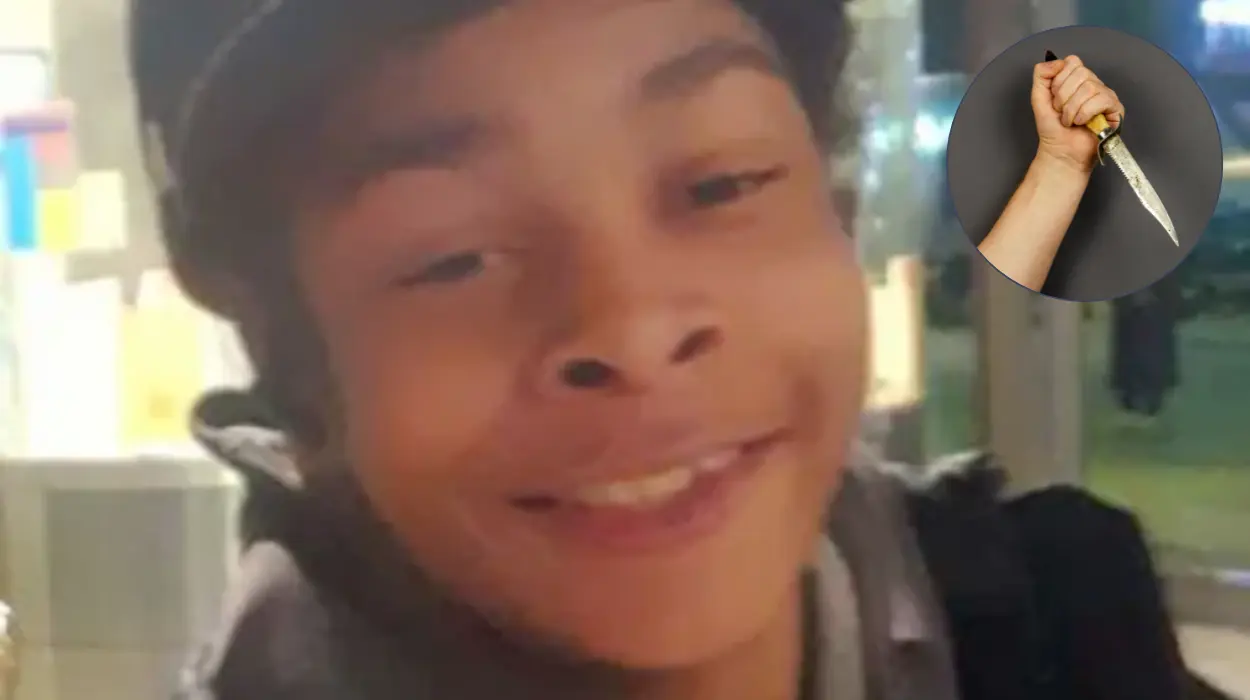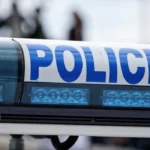Key Points:
- Victim: Kelyan Bokassa, 14, was stabbed 27 times on a bus in Woolwich, south-east London, on 7 January 2025
- Weapons: Attackers used large machetes in a targeted assault on the upper deck of a Route 472 bus
- Perpetrators: Two boys, now 16, pleaded guilty to murder at the Old Bailey on 23 May 2025
- Motive: Prosecutors said the attack was not spontaneous; the assailants knew Kelyan was on the bus
- Mother’s statement: Mary Bokassa said her son was groomed by gangs while living on the streets after fleeing care
- Court details: Judge Mark Lucraft KC ordered pre-sentencing reports; sentencing scheduled for 25 July
- Privacy order: Reporting restrictions on naming the killers remain but could be reviewed at sentencing
- Context: Incident adds to a growing pattern of knife crime and teenage violence in south-east London
- Source attribution: Reported by Sam Corbishley and John Dunne, Metro, 23 May 2025
Two teenage boys have admitted to murdering 14-year-old Kelyan Bokassa, who was stabbed 27 times with machetes while travelling on a London bus in what police and prosecutors have described as a planned and targeted attack.
The teenagers, both aged 16, entered guilty pleas at the Old Bailey on 23 May 2025, more than four months after the brutal daylight assault on a Route 472 bus in Woolwich. The attack took place on 7 January 2025 and was carried out with large machetes as the bus travelled through Woolwich Church Road, near the junction with the A205 South Circular.
What happened on the bus in Woolwich?
As reported by Sam Corbishley and John Dunne of Metro, prosecutor Tom Little KC told the court the two youths boarded the bus knowing Kelyan was there and immediately targeted him.
“He is stabbed or attempted to be stabbed on a total of 27 occasions before the defendants made their way off the bus,” Mr Little said, adding, “It is clear this is not a form of spontaneous incident. The two defendants must have known the deceased was on the bus. They approach him and almost instantaneously the two of them pull out machetes and attacked the deceased.”
The incident occurred on the upper deck where Kelyan was seated at the rear. One of the weapons was later recovered from the River Thames, where it had allegedly been discarded.
Who was Kelyan Bokassa?
Kelyan Bokassa was an aspiring rapper who had faced a troubled upbringing. After fleeing from a care facility, he lived on the streets for nearly a year. His mother, Mary Bokassa, described the traumatic effects this period had on him.
As reported by Sam Corbishley of Metro, Mary stated: “My son and others were taken advantage of by gangs. They were groomed. He was missing for a year and was living on the street. He finally turned up at my doorstep, he was sick, underweight and tattooed… He was exposed to drugs. He probably experienced something because I could sense it.”
She added, “He was not himself. If I questioned him he wouldn’t tell me anything about his friends.”
How did the family react to the guilty pleas?
Family members, seated metres from the dock, gasped and appeared tearful when the two defendants entered their guilty pleas.
Jacques Tizier, a family friend who had supported Kelyan’s mother in the days following the murder, told Metro: “It’s a relief that they have pleaded guilty and justice is being done. But nothing will bring Kelyan back and everything is still a struggle for the family especially his mother.”
Previously, Mr Tizier described the grief-stricken atmosphere in the family’s east London home: “We are all heartbroken and trying to support his mother,” he told the outlet, referring to the makeshift shrine of photographs created in the living room.
What did the court decide?
Judge Mark Lucraft KC has ordered pre-sentence reports and scheduled sentencing for 25 July 2025. The teenagers, who cannot be named due to their age, may yet be publicly identified depending on the outcome of a media application to lift reporting restrictions.
Lucraft indicated that this application would be considered at sentencing.
What does this reveal about youth violence in south-east London?
Kelyan’s murder is part of a broader pattern of knife-related violence in the region. According to government and crime data:
- London recorded 15,016 knife or sharp instrument offences in 2023/24, the highest figure since 2019/20
- In 2022/23, South London boroughs such as Southwark (737), Lambeth (735), and Croydon (681) had the highest number of knife crimes
- 18% of all offensive weapons disposals in England were to juveniles aged 10–17 in the year to March 2023
- Areas such as Woolwich Riverside and New Cross are among the worst-affected in south-east London for youth violence
The January attack on Kelyan and another major incident in May 2025, where five people were stabbed at a music event in Thamesmead, have further alarmed residents and campaigners about the scale and frequency of youth knife crime.
How are social factors influencing these crimes?
Analysis by multiple youth safety organisations shows strong associations between violent youth crime and factors such as:
- Deprivation and poverty
- School absence and exclusion
- Lack of access to youth services or safe after-school spaces
These social drivers remain especially acute in neighbourhoods like Woolwich, where many teens lack meaningful alternatives to gang affiliation and street-based networks.
What happens next?
The court will reconvene on 25 July 2025 for sentencing. The two 16-year-olds remain in custody. Media organisations may push to have the anonymity restrictions lifted, which could lead to full public identification of the offenders depending on the judge’s ruling.
Kelyan’s murder continues to resonate as a devastating reminder of the risks facing vulnerable youth in London. For now, the community that mourns him must wait for final sentencing—and hope for change that reaches beyond the courtroom.


